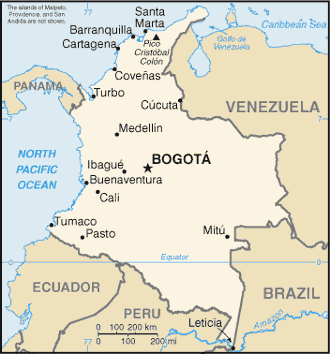There’s little appetite for war among the leaders of Colombia or of the long-standing Marxist insurgency FARC, with 52-years of war meant to have ended this weekend with a referendum on the peace deal formally the ending the conflict.
 Still, with the referendum ending in a narrow failure, the two sides are back together in Cuba, holding “crisis talks” and trying to come up with some way to salvage a hard-won peace agreement that the public ultimately wasn’t quite sold on.
Still, with the referendum ending in a narrow failure, the two sides are back together in Cuba, holding “crisis talks” and trying to come up with some way to salvage a hard-won peace agreement that the public ultimately wasn’t quite sold on.
A big part of the process is likely to be former President Alvaro Uribe, who championed the “no” side of the referendum, arguing that the deal went too easy on FARC, and who has offered to help make “corrections.” He is meeting with the current government about the matter, but not with FARC so far. Whether this change will be something palatable to FARC or not remains to be seen.
President Santos insists there is no “Plan B,” and neither his government nor FARC has indicated any interest in leaving the ceasefire. Still, after years negotiating the first deal, negotiating another looks to be a major obstacle, particularly when there was so much confidence in the first one passing by a landslide.


